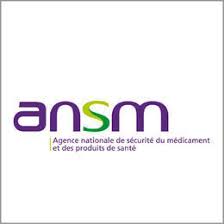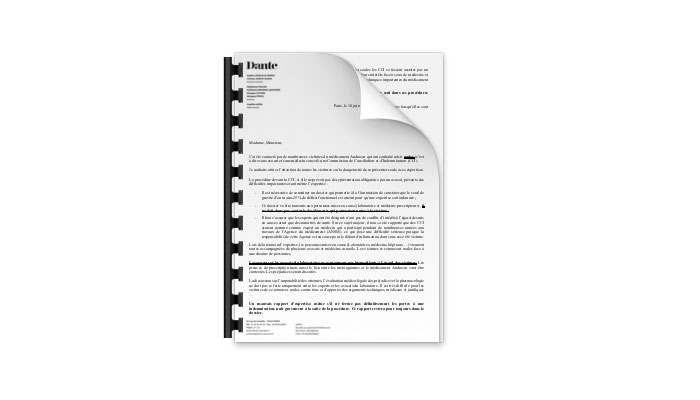Lotényl / Lotéran: documents to guarantee the information of women on the increase in the risk of meningioma
Lutényl prescribing doctors (Nomestrol acetate), Lutéran (Chlormadinone Acetate) or their generics must now give the patients concerned an information document presenting the risk of meningioma associated with these drugs.
Furthermore, as soon as the treatment is continued beyond one year, any dispensation of these pharmacy drugs will require an annual information certificate co-signed by the patient and her doctor. These new measures are compulsory as of July 1, 2021 for treatment initiations and January 1, 2022 for renewals.
These documents have been drawn up in consultation with patient associations and health professionals concerned. Their objective is to better inform women about the risk of meningioma and to promote the exchange between the patient and her doctor during medical consultation, so that they take the decision to use these drugs or not.
The information document also specifies the methods of monitoring by imaging to be carried out during processing, as well as the conduct to be kept in the event of a meningioma diagnosis.
For a beginner woman a treatment with Lotényl, Lotéran or one of their generics or a woman treated for less than a year :
- The doctor must give the patient the information document and mention on the prescription “Treatment of less than one year” from July 1, 2021 .
- Information certificate is not essential during the first year of processing.
- The patient can obtain her medication at the pharmacy only if this mention appears on her prescription.
For a woman under treatment Lutényl, Lotéran or one of their generics for more than a year :
- On the occasion of the next gynecology consultation, the interest in continuing treatment must be reassessed taking into account the individual benefit/risk ratio.
- At the latest on January 1, 2022 , the doctor will have to give the patient the information document and a copy of the co-signed information certificate (the original is kept in the patient's medical file). The certificate must be presented to obtain the drug in pharmacy.
Please note : whatever the age of treatment, it must be reassessed at each gynecology consultation and at least once a year.
If your treatment ensured your contraception, in the event of a stop, even punctual, you should think about using an effective contraceptive method.
You can also download them (see below)
in addition, paper shipments of these information documents will be taken over during the second half of the month of July.
Magazines report new rules and documents, such as Sante Magazine
https://www.santemagazine.fr/actualites/actualites-sante/lutenyl-luteran-et-meningiome-lansm-detaille-les-nouvelles-conditions-et-de-delivrance-de-ces-progestifs-894796
Lutenyl, Luteran and Meningioma: ANSM details the new conditions and delivery of these progestins
Following the discovery of cases of meningioma due to two commonly prescribed progestins, in particular against endometriosis, the drug agency has unveiled new measures to limit the risks for patients.
Effective measures since July 1, 2021
Following data indicating a risk of meningioma (cerebral tumor, most often non -malignant) in women receiving treatment based on Lotényl and Luteran or their generics, the National Medicines Safety Agency (ANSM) sounded alarm.
Indeed, women whose duration of treatment exceeds 6 months see their risk of meningioma multiplied by 3 compared to women not exposed to these drugs. A risk that increases with the dose used and the duration of treatment. However, this treatment is used in particular against endometriosis , chronic gynecological disease, which often requires long -term treatment.
The ANSM has therefore implemented several measures, "safe", to prevent new cases of meningioma from occurring.
"Lutényl prescribing doctors, Lotéran or their generics must now give the patients concerned an information document presenting the risk of meningioma associated with these drugs ," the agency announced in a news point dated July 2.
Furthermore, "as soon as the treatment is continued beyond one year, any dispensation of these pharmacy drugs will require an annual information certificate co-signed by the patient and her doctor," added the ANSM. It specifies that these new measures are compulsory as of July 1, 2021 for treatment initiations and January 1, 2022 for renewals.
Measures taken in consultation with patients and prescribing doctors
In detail, the ANSM distinguishes two large cases:
- For a beginner woman a treatment with Lotényl, Lotéran or one of their generics, or a woman treated for less than a year: since July 1, 2021, the doctor must give the patient the information document and mention on the prescription " Treatment less than one year ";
- For a woman under treatment Lutényl, Lotéran or one of their generics for more than a year, it will be necessary, during the next gynecology consultation, to discuss the interest of continuing treatment , taking into account the benefit/individual risk ratio.
For the Medicines Agency, which specifies that these decisions have been developed in consultation with the associations of patients and the health professionals concerned, it is that patients and doctors weigh together the pros and cons to use these macroprogestatives.
When should you make a control MRI?
According to the ANSM, brain imaging (MRI) of control must be carried out as follows:
- At the start of treatment only in the event of identified meningiomal risk factors (history of encephalic radiotherapy in childhood or type 2 neurofibromatosis);
- at any time during or after treatment in the event of signs evocative of meningiomas (frequent headache, dizziness, memory, language, vision or hearing disorders, nausea, etc.);
- And after a year of treatment when it requires being prosecuted.
" If you have been treated for less than a year and you do not feel symptoms evocative of meningioma, it is not necessary to make a brain MRI ," tempers the ANSM, however.
The information document can be downloaded from the Ansm news .





